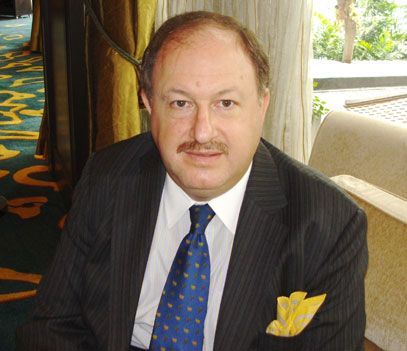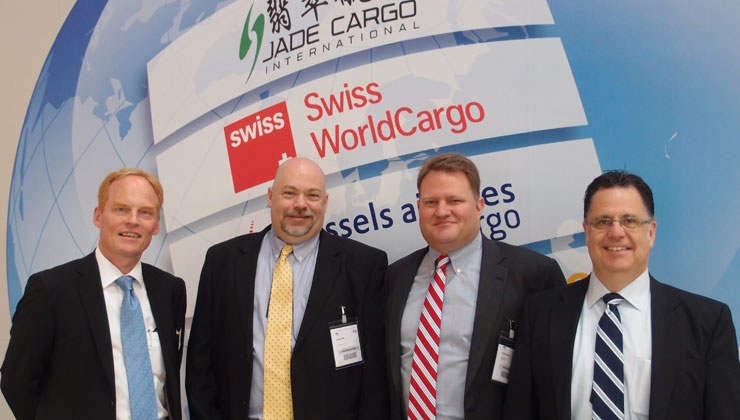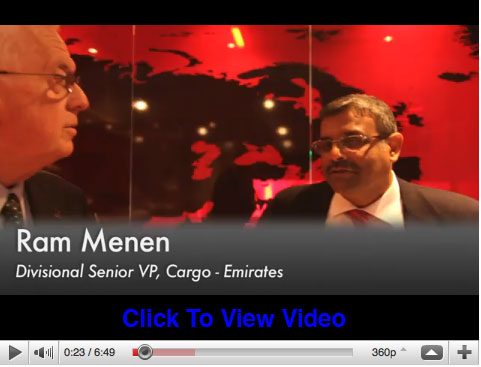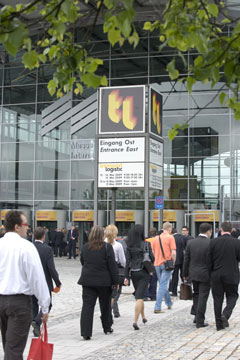Worldwide
Flight Services
India Outlook
 Worldwide
Flight Services (WFS) has been present in Asia for some 12 years but
has yet to get into the air cargo business in India. Way back in September
2009, it was reported that WFS had tied up with a consortium of the
Bird Group for the construction of a second cargo terminal at Delhi’s
Indira Gandhi International Airport. The contract was supposedly for
a concession period of 25 years but it did not work out. Indeed, it
would have been a big name in WFS’ portfolio: the airport is the
largest airport in the country and in terms of cargo traffic, has been
witnessing a compound annual growth rate of 10 per cent over the last
four years. Worldwide
Flight Services (WFS) has been present in Asia for some 12 years but
has yet to get into the air cargo business in India. Way back in September
2009, it was reported that WFS had tied up with a consortium of the
Bird Group for the construction of a second cargo terminal at Delhi’s
Indira Gandhi International Airport. The contract was supposedly for
a concession period of 25 years but it did not work out. Indeed, it
would have been a big name in WFS’ portfolio: the airport is the
largest airport in the country and in terms of cargo traffic, has been
witnessing a compound annual growth rate of 10 per cent over the last
four years.
That, however, was a missed opportunity.
But WFS is in India along with Bird Group at Delhi and Cochin airports
with their ground handling operations. In fact, WFS India launched operations
at Delhi on July 1, 2009 and at Cochin on June 10, 2009, providing ramp
and passenger handling services for a number of international carriers.
As Barry D Nassberg, Executive Vice President
and Chief Operating Officer, WFS based at Hong Kong, pointed out, “Our
entry has been Bangkok for cargo handling …It’s been a huge
success for us. We operate at 121 airports around the world and Bangkok,
in terms of its cargo handling, is our second largest. So, for an airport
that has only now been in terms of the volume it represents, this year
it will be close to 10 per cent of our total annual cargo handling volumes.
I mean we do about 31⁄2 million tonnes a year globally and this
year Bangkok will come close to being 10 per cent. As Asia is prominent
and growing; we have a lot of aspirations for development in Asia.”
WFS has its eyes set on India. Nassberg
acknowledged the fact that the company was operating in India, “but
not for cargo. We are on the ramp and the passenger side. We are active
in India, yes. Now, cargo is next and we are going in with intent into
cargo,” he emphasized.
To put the record straight, the WFS management
is bullish about India. Nassberg pointed out that handling cargo in
India was absolutely on the horizon. “We are very optimistic.”
Looking ahead five years from now, WFS “will be in more than one
airport in India in cargo handling. Right now we are watching the developments
in Mumbai very carefully both in terms of the existing airport as well
as in terms of Navi Mumbai and we are keen to participate in that. I’m
sure that we will… there are other opportunities in India.”
These “opportunities” would
mean “being allowed to develop cargo facilities in airports,”
in Tier-II cities.
The presence of WFS in Asia – in
Hong Kong and Thailand – was a bit of a gamble but the move has
paid off. WFS did not believe it would do so well. As Nassberg confessed,
“We didn’t think so when we started because we opened our
Hong Kong office in late ’96 and then shortly afterwards in early
’97 came the big crash in Thailand and things started to deteriorate.”
But, in hindsight, it was a well thought-out move. “We had some
misgivings,” said Nassberg, “but then in retrospect, we
were in the right place and the right time. We came in at the bottom
of the market at a time when many of our competitors were scared away
and we were resilient and we remained committed and it has paid off
for us. And the fact is that if we look at the global airport services
companies, we feel that our presence in Asia has surpassed the others.
We have done better than anyone else has and certainly have better potential.
We are very well placed and it’s because we are committed to it
during the downtimes.”
The commitment comes from the unique blend
of experience that WFS has. Nassberg ascribes it to the dual origins
of the company: Europe and North America. “We’ve taken bits
from both sides.” The cargo handling experience has come from
Europe “where we have most of the cargo handling experience and
we are one of the largest players in Europe. That has served us very
well: not only the experience but the relationships with airlines.”
The WFS CEO came out with the example of the major Chinese airlines—Air
China, China Eastern and China Southern – that have, for many
years, been amongst WFS’ biggest customers in Europe and in North
America. “Long before we were planning to do anything in Asia,
they were with us,” commented Nassberg.
The wealth of experience has helped WFS
to move into China. “We have a very well developed relationship
(with China),” said Nassberg. “In fact we maintain an office
in Beijing… even though we’re not doing any activity on
the ground in China, we maintain an office in Beijing just to manage
the relationships with our Chinese airline customers and that has served
us very, very well. It shows our commitment to them and to the region
and to the kind of support that they would not normally find,”
he said. “You would not normally find the representative of an
international airline’s key global ground handler right next door?
That has worked very well and that will serve us well as we develop
in the region.”
The success in China has prompted WFS
to look closely at India and enhance its portfolio. “When we look
at economic growth in Asia,” said Nassberg, “we look at
production and the tremendous potential. “We also look at airport
infrastructure and development which tends to predict where economies
are going. We think the best years are very much still ahead,”
he predicted.
As for India, the time had come and despite
the infrastructure problems, things have to move. “It’s
going to take years,” Nassberg agreed, “but you have to
start. A journey of a thousand miles starts with one step and that step’s
got to be taken. We can sit here and talk about it as long as we want;
the problem is not going to go away. So we have got to address it.”
Infrastructure in India is a challenge and Nassberg was somewhat familiar
with the situation as well as the challenge. Even so, “we look
forward to being there in cargo as well,” he said.
Tirthankar Ghosh/Flossie
|






